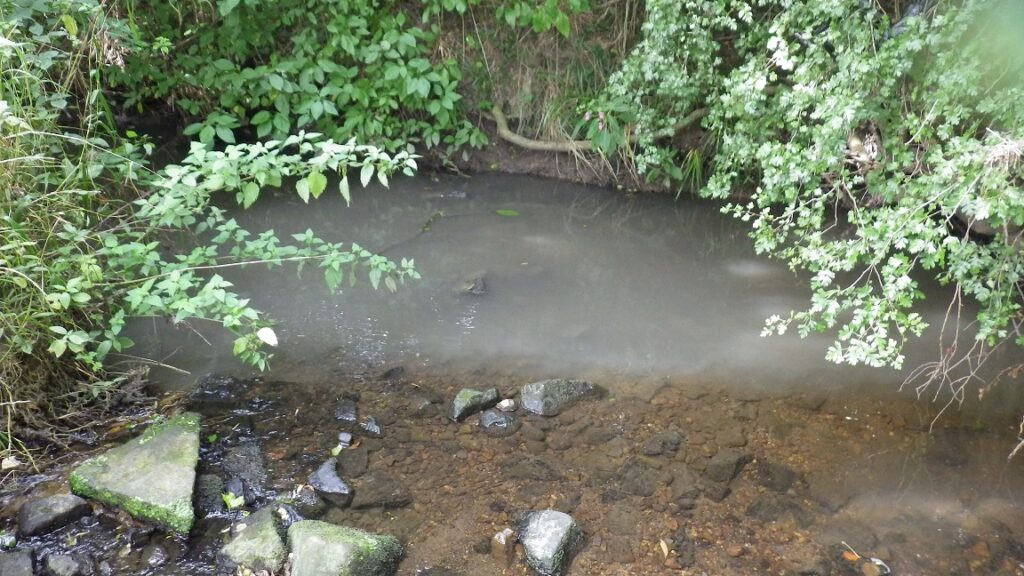UK to issue ‘unlimited’ financial penalties for waterway polluters

Companies that pollute the environment in the UK can now be hit with unlimited financial penalties from the Environment Agency.
The previous £250,000 cap on Variable Monetary Penalties (VMPs) has been scrapped, and the range of offences they cover has been expanded.
The news comes just three months after the government attempted to weaken river pollution rules by ripping up EU-derived laws on nutrient neutrality, which force developers to mitigate pollution from new developments.
The plans were left in tatters after two defeats in the House of Lords. The Guardian revealed that the government had ignored its own nature watchdog’s advice on scrapping the pollution rules.
VMPs are designed to act as a punishment and deterrent for breaches of legislation, including environmental permits, and the government says they will be used following an investigation when it is not in the public interest to prosecute. The most serious breaches of the law will continue to be subject to criminal proceedings.
The range of offences that can be punished with a VMP now includes a breach of permit conditions from sites that discharge into rivers and seas — for example, from sewage treatment works and permitted storm overflows. Offences also include illegal discharges to water where there is no permit, such as in the event of agricultural pollution from slurry stores; and illegal waste offences, such as from illegal scrapyards or unpermitted waste management facilities. The scope also extends to permit breaches from manufacturing industries and power stations that contribute to air pollution.
The new unlimited penalties come as UK water companies face mounting criticism from the public and environmental groups for an ‘unacceptably high’ number of serious water pollution incidents.

This summer, at least 50 swimmers reported suffering from diarrhoea and sickness after competing in sea swimming events at the World Triathlon Championship in Sunderland, raising questions about the water quality.
The changes, which follow a consultation in spring 2023, affect all firms that have environmental permits, including water and waste companies as well as the agricultural sector and process industries. Penalties issued will be proportionate to the size of the company and the nature of the offence, in line with Sentencing Council guidelines.
“Polluters should be in no doubt that if they harm our precious habitats and waterways, they will pay,” says environment secretary Steve Barclay.
“By lifting the cap on these sanctions, we are simultaneously toughening our enforcement tools and expanding where regulators can use them. These changes will deliver a proportionate punishment for operators that breach their permits and cause pollution.”
Barclay recently hit headlines after it emerged his wife Karen Barclay is an executive at Anglian Water, which is under investigation for potential illegal dumping of raw sewage. As secretary of state, Barclay is responsible for overseeing the regulation of water companies. Campaigners argue this is a potential conflict of interest.
“These new powers will allow us to deliver more penalties and help us to continue to hold polluters, including water companies, to account,” says Environment Agency executive director John Leyland.
“The threat of uncapped financial penalties should boost compliance with environmental laws – helping us provide stronger protection to the environment, communities and nature.”
The funds raised from water company penalties will be reinvested in a new Water Restoration Fund, designed to provide direct investment for projects that work to improve rivers, lakes and streams at a local level.

Last month, Yorkshire Water paid a record £1m to environmental and wildlife charities after polluting a Harrogate watercourse, following an investigation by the Environment Agency.
The company breached its environmental permit with an unauthorised sewage discharge from Hookstone Road combined sewer overflow, which polluted Hookstone Beck. It has also completed a £1.85m sewer network upgrade in the area as part of the enforcement terms.
In November, a flotilla of boats protested outside the Palace of Westminster in London over the government’s ‘unacceptable and damaging’ funding cuts for the UK’s canals and rivers.
The boaters and supporters acted on behalf of a new campaign group, Fund Britain’s Waterways (FBW), representing over 100 organisations with varying interests in the waterways. The group is campaigning to ensure that there is sufficient funding to retain the huge environmental, economic and social benefits that Britain’s inland waterways are widely acknowledged to provide.










